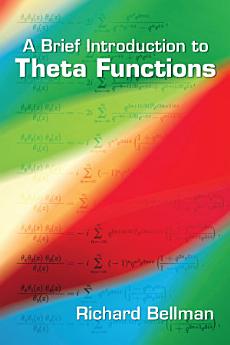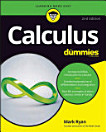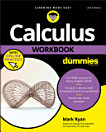A Brief Introduction to Theta Functions
ม.ค. 2013 · Courier Corporation
eBook
78
หน้า
reportคะแนนและรีวิวไม่ได้รับการตรวจสอบยืนยัน ดูข้อมูลเพิ่มเติม
เกี่ยวกับ eBook เล่มนี้
Brief but intriguing, this monograph on the theory of elliptic functions was written by one of America's most prominent and widely read mathematicians. Richard Bellman encompasses a wealth of material in a succession of short chapters, spotlighting high points of the fundamental regions of elliptic functions and illustrating powerful and versatile analytic methods.
Suitable for advanced undergraduates and graduate students in mathematics, this introductory treatment is largely self-contained. Topics include Fourier series, sufficient conditions, the Laplace transform, results of Doetsch and Kober-Erdelyi, Gaussian sums, and Euler's formulas and functional equations. Additional subjects include partial fractions, mock theta functions, Hermite's method, convergence proof, elementary functional relations, multidimensional Poisson summation formula, the modular transformation, and many other areas.
Suitable for advanced undergraduates and graduate students in mathematics, this introductory treatment is largely self-contained. Topics include Fourier series, sufficient conditions, the Laplace transform, results of Doetsch and Kober-Erdelyi, Gaussian sums, and Euler's formulas and functional equations. Additional subjects include partial fractions, mock theta functions, Hermite's method, convergence proof, elementary functional relations, multidimensional Poisson summation formula, the modular transformation, and many other areas.
ให้คะแนน eBook นี้
แสดงความเห็นของคุณให้เรารับรู้
ข้อมูลในการอ่าน
สมาร์ทโฟนและแท็บเล็ต
ติดตั้งแอป Google Play Books สำหรับ Android และ iPad/iPhone แอปจะซิงค์โดยอัตโนมัติกับบัญชีของคุณ และช่วยให้คุณอ่านแบบออนไลน์หรือออฟไลน์ได้ทุกที่
แล็ปท็อปและคอมพิวเตอร์
คุณฟังหนังสือเสียงที่ซื้อจาก Google Play โดยใช้เว็บเบราว์เซอร์ในคอมพิวเตอร์ได้
eReader และอุปกรณ์อื่นๆ
หากต้องการอ่านบนอุปกรณ์ e-ink เช่น Kobo eReader คุณจะต้องดาวน์โหลดและโอนไฟล์ไปยังอุปกรณ์ของคุณ โปรดทำตามวิธีการอย่างละเอียดในศูนย์ช่วยเหลือเพื่อโอนไฟล์ไปยัง eReader ที่รองรับ








